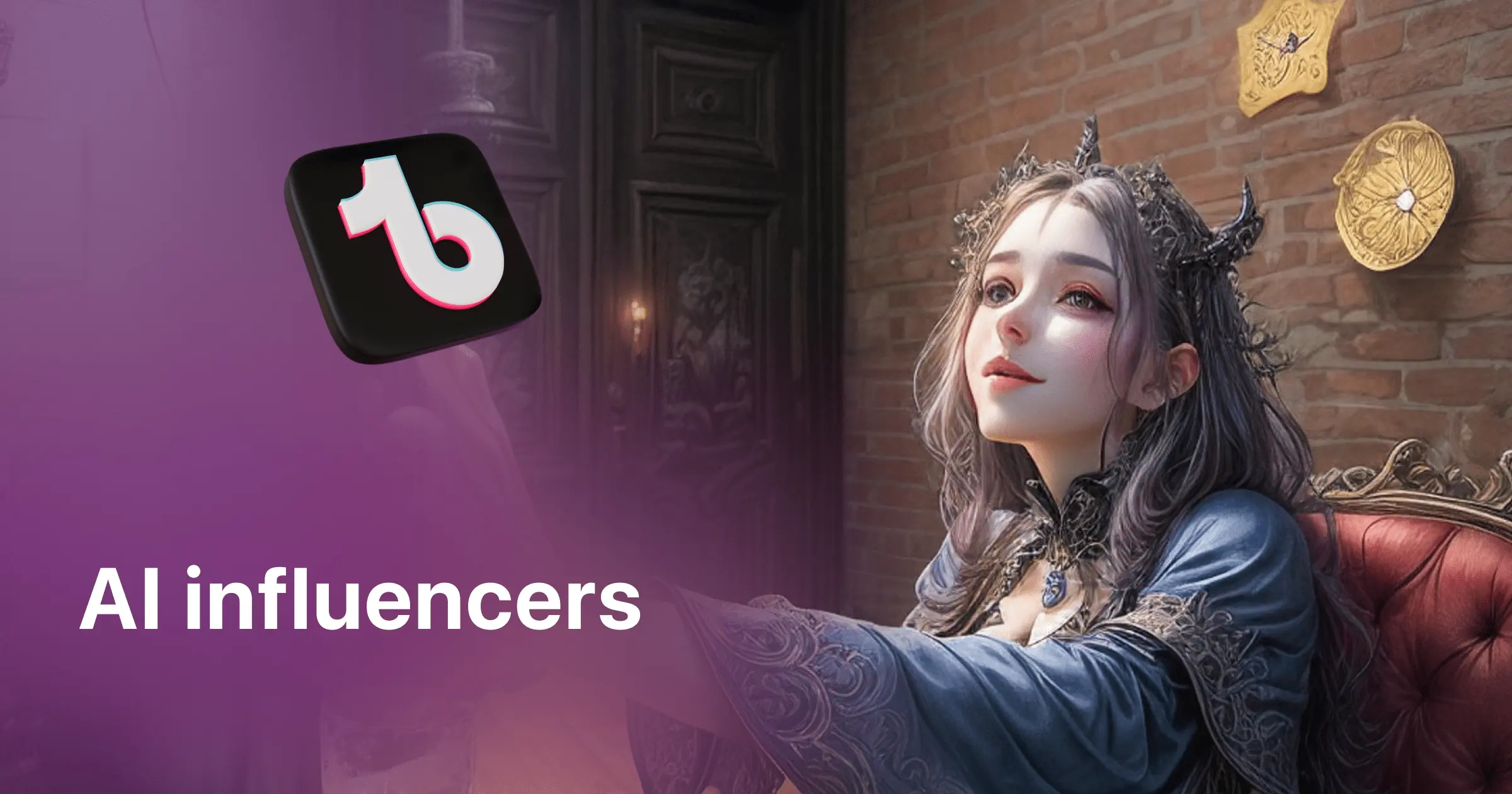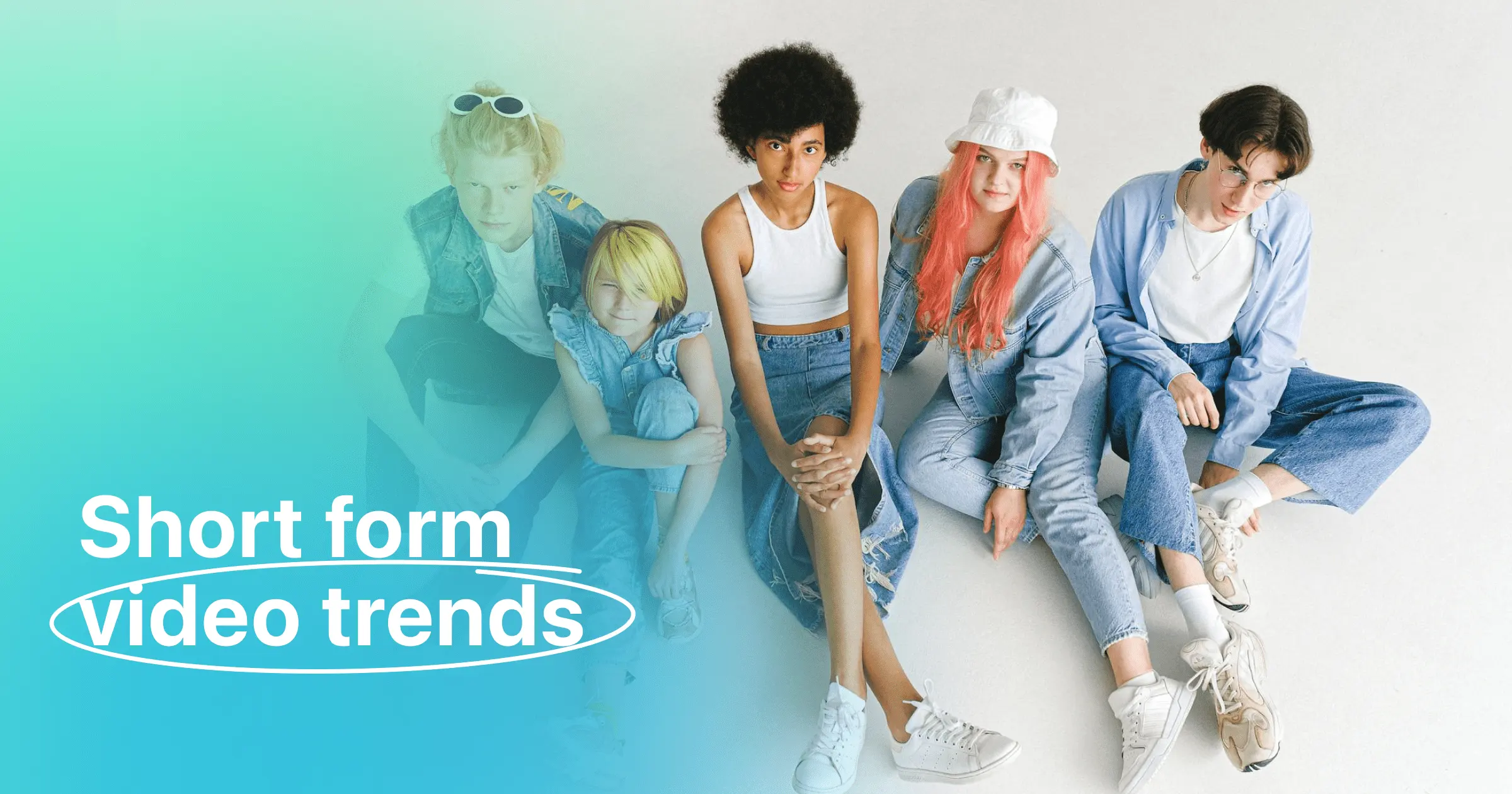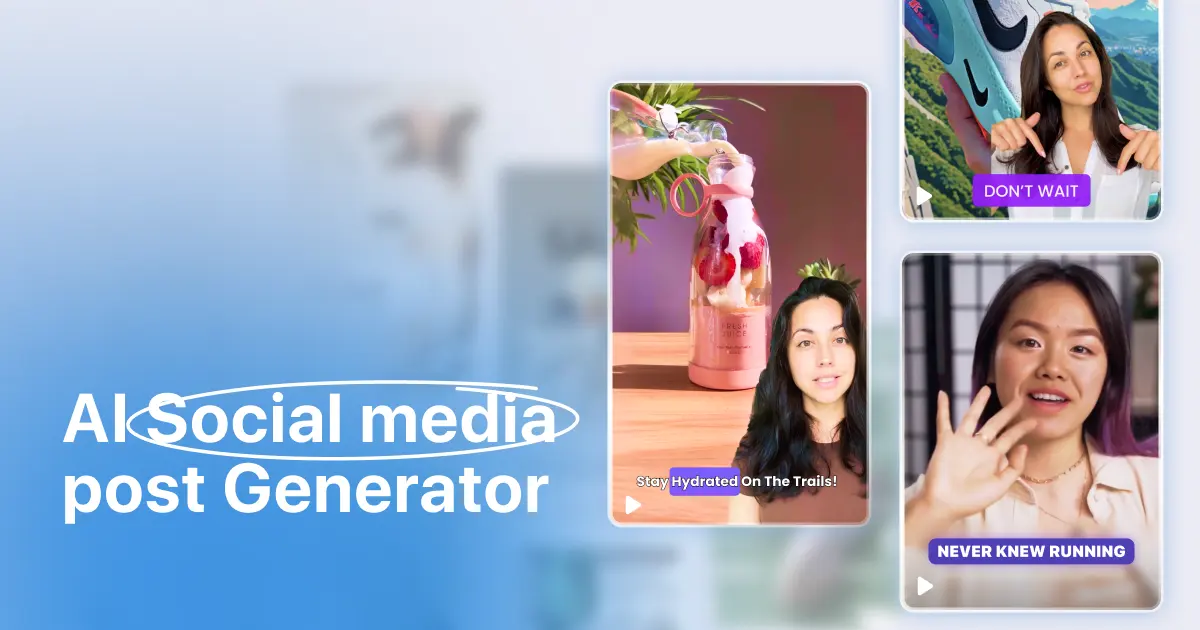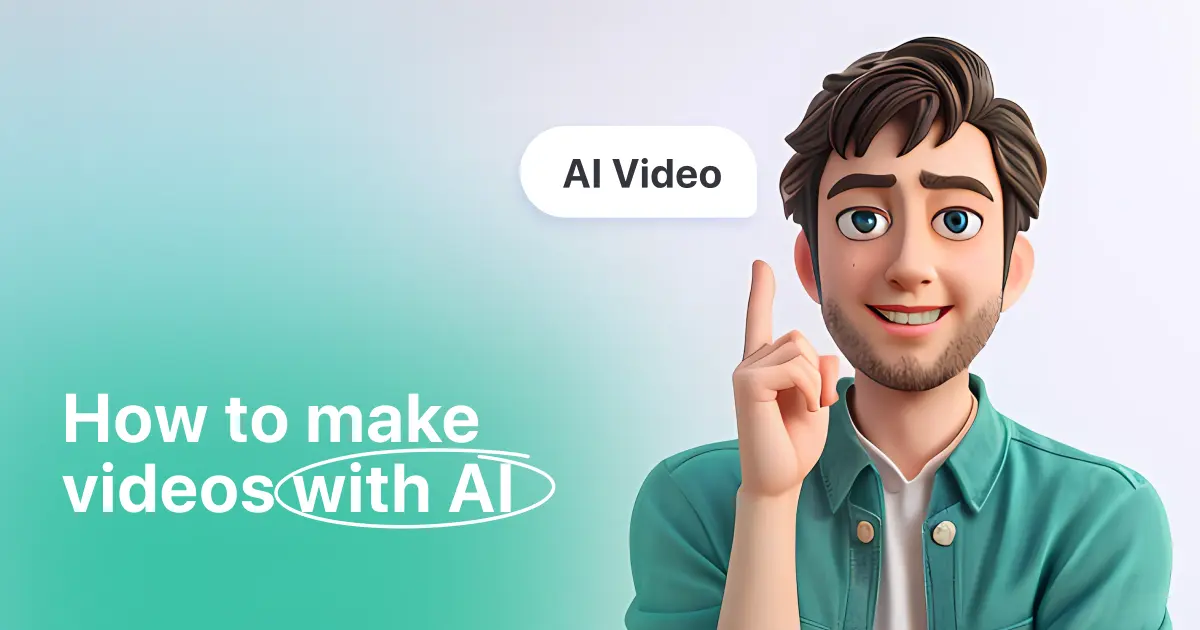Plans built for businesses
Pro + AI
For pro video creation
Advanced + AI
For users who want to generate video ads
*Billed yearly
Compare plans
AI in Social Media: Trends, Tools, Examples, and More
20 June, 2024Nowadays, the integration of AI in social media has fundamentally transformed how businesses and individuals communicate and engage online. This evolution has moved beyond simple interactions, reshaping the landscape of social media into a dynamic and intelligent ecosystem. AI's sophisticated capabilities in analyzing vast amounts of data, predicting user behavior, and automating processes have made it an indispensable tool for social media platforms and marketers alike.
Social media platforms such as Facebook, Instagram, X (Twitter), and newer entrants are leveraging AI to enhance user experience, deliver personalized content, and optimize advertising efforts.
For marketers, AI provides invaluable insights into consumer behavior, enabling them to craft more effective and targeted campaigns. Beyond the business perspective, AI also enriches user interactions, making social media a more engaging and intuitive space.
This article delves into the multifaceted role of AI in social media, beginning with the current trends that are shaping the industry. It provides concrete examples of AI applications, illustrating how different platforms and tools harness AI's power. Looking to the future, we will explore emerging technologies and innovations that promise to revolutionize social media further. Additionally, we will discuss a range of AI tools available for social media marketing, offering insights into their functionalities and benefits.
The Current Trends of AI in Social Media
AI in social media has seen significant advancements in recent years, transforming how content is created, distributed, and consumed. Here are some key trends:
Content Generation and Personalization
One of the most prominent trends is the use of AI for content generation and personalization. Tools like Zoomerang AI Chat enable users to create engaging videos quickly and efficiently.
By inputting editing preferences, users can receive a professionally edited video within minutes, eliminating the traditional time-consuming editing process. This AI-driven approach not only saves time but also ensures that content is tailored to specific audience preferences, enhancing engagement and effectiveness.
Predictive Analytics and Insights
AI's ability to analyze large datasets and predict trends is another significant trend. Social media platforms leverage AI to provide predictive analytics, helping businesses understand what content will likely resonate with their audience. This predictive power enables marketers to craft more targeted campaigns and make data-driven decisions.
Chatbots and Customer Service
AI-powered chatbots have become a staple in social media customer service. These bots can handle a variety of tasks, from answering frequently asked questions to resolving issues, providing 24/7 support. This trend not only improves customer satisfaction but also reduces the workload on human agents.
Sentiment Analysis
AI in social media also involves sentiment analysis, where AI algorithms analyze user comments and feedback to gauge public sentiment towards brands, products, or services. This insight is invaluable for businesses to understand their audience's perception and make informed decisions to enhance their brand image.
Visual and Voice Recognition
Advanced AI technologies like visual and voice recognition are being integrated into social media platforms. Visual recognition allows platforms to automatically tag and categorize images, improving user experience and content discoverability. Voice recognition, on the other hand, is being used to enable voice-activated searches and commands, making social media more accessible and interactive.
AI in Social Media Examples
The application of AI in social media is vast and varied, offering numerous tools and functionalities that significantly benefit social media marketers. Here are some notable examples:
Facebook's DeepText
Facebook uses an AI engine called DeepText to understand and interpret the textual content shared on its platform. DeepText can analyze thousands of posts per second across multiple languages, helping Facebook provide more relevant content to users and improve the accuracy of its ad targeting. This capability allows marketers to deliver highly targeted ads based on users' real-time interests and behaviors.
Instagram's Explore Page
Instagram on the other hand, leverages AI to curate the content displayed on the Explore page.

By analyzing user behavior, preferences, and engagement, AI algorithms suggest posts and accounts that are likely to interest each user, enhancing their overall experience on the platform. For marketers, this means increased visibility and engagement with their content, leading to higher conversion rates.
X (Twitter's) Recommendation Algorithms
X uses AI to recommend tweets and accounts to follow. By analyzing user interactions, tweet content, and network connections, Twitter's AI algorithms personalize the feed for each user, ensuring they see the most relevant and engaging content.
Marketers can utilize these insights to tailor their tweets for maximum impact and reach.
Zoomerang AI Chat
Zoomerang AI Chat stands out as an example of AI-driven content generation. Designed for video editors, this tool helps create video scripts and basic video structures through an AI-powered chat interface.
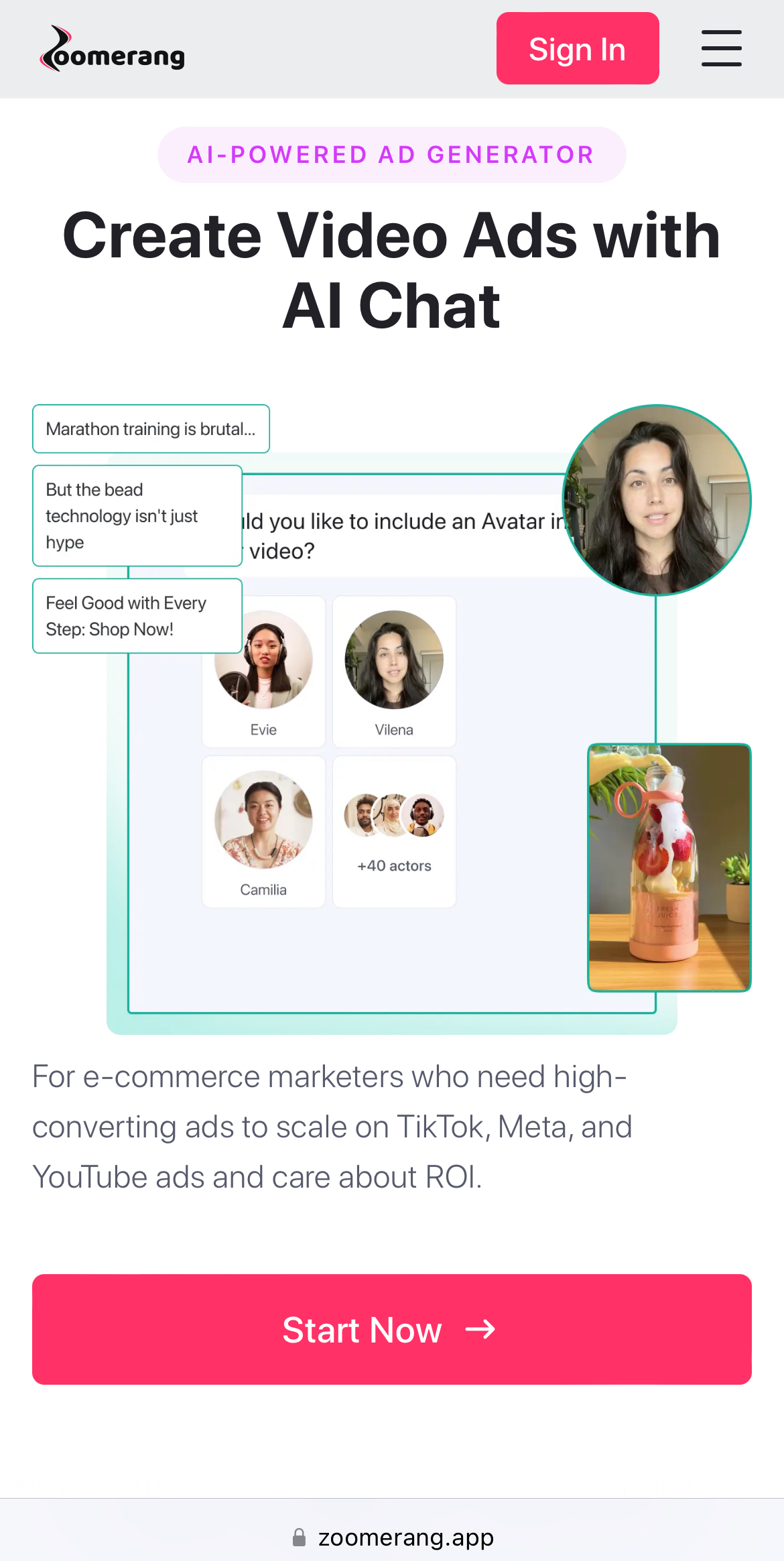
Users can describe the type of video they want (e.g., demo, ad, reel), and VideoGPT generates a script based on their preferences. This streamlines the video creation process, making it accessible and efficient for marketers.
TikTok's For You Page
TikTok's For You Page (FYP) is a prime example of AI-driven content personalization in social media. The platform uses advanced machine learning algorithms to curate a personalized stream of videos for each user.
By analyzing factors such as user interactions (likes, shares, comments), video information (captions, hashtags), and device/account settings (language preference, country setting), TikTok's AI delivers content uniquely tailored to individual preferences.
This not only enhances user engagement but also increases the likelihood of content creators reaching their target audience.
AI-Powered Insights and Analytics
Hootsuite integrates with Brandwatch to offer powerful social listening capabilities. This AI-driven tool analyzes conversations across social media platforms, identifying trends, sentiment, and emerging topics.
Marketers can use these insights to adjust their strategies in real-time, respond to customer feedback promptly, and capitalize on trending topics.
Sprout Social uses AI to provide deep analytics and insights into social media performance. Its AI-driven features include advanced sentiment analysis, competitive benchmarking, and predictive analytics.
By leveraging these insights, marketers can refine their content strategies, optimize posting schedules, and improve engagement.
AI Content Creation
Lately AI has been employed to transform long-form content such as blogs, whitepapers, or podcasts into dozens of social media posts.
This tool analyzes the content to identify key themes and topics then generates multiple short-form posts that can be shared across various social media channels.
This dramatically reduces the time marketers spend on content creation while ensuring consistency and relevance.
Resize and Design Suggestions
Canva uses AI to help marketers create visually appealing content with ease. The Magic Resize feature automatically adjusts designs for different social media platforms, while the design suggestions feature offers AI-powered recommendations to enhance visual elements.
This enables marketers to maintain a consistent brand aesthetic across all channels.
The Future of AI in Social Media
The future of AI in social media promises even more innovative and transformative developments. Here are some potential advancements:
Enhanced Personalization
As AI algorithms become more sophisticated, the level of personalization in social media will continue to improve. Future AI systems will be able to provide hyper-personalized content, tailoring not only the type of content but also the timing and format to individual user preferences.
Augmented Reality (AR) and Virtual Reality (VR)
AI will play a crucial role in integrating AR and VR into social media platforms. These technologies will enable users to have immersive experiences, from virtual shopping to attending virtual events, all enhanced by AI-driven personalization and interaction.
Improved Sentiment Analysis
Future advancements in natural language processing (NLP) will enhance sentiment analysis capabilities. AI will be able to understand context and nuance better, providing more accurate insights into public sentiment and enabling businesses to respond more effectively to consumer feedback.
Automated Content Moderation
AI's role in content moderation will expand, helping social media platforms detect and remove harmful or inappropriate content more efficiently. Advanced AI systems will be able to understand the context and intent behind posts, reducing the prevalence of misinformation, hate speech, and other harmful content.
Social Media Marketing Automation
AI will further automate social media marketing tasks, from content creation and scheduling to performance analysis and optimization. Marketers will be able to leverage AI-driven tools to manage campaigns more effectively, freeing up time for strategic planning and creative endeavors.
5 AI Tools for Social Media
AI tools for social media are diverse, catering to various aspects of content creation, management, and analysis. Here are some noteworthy tools:
Hootsuite Insights

Hootsuite Insights is an AI-powered social media analytics tool that provides real-time data and trends. It helps businesses monitor brand mentions, track sentiment, and analyze competitor activity, enabling them to make informed decisions and optimize their social media strategies.
Sprout Social
.jpeg?)
Sprout Social uses AI to provide comprehensive social media management solutions. Its AI-driven features include social listening, sentiment analysis, and automated reporting, helping businesses understand their audience and improve engagement.
Canva
.jpeg?)
Canva, a popular graphic design tool, integrates AI to assist users in creating visually appealing social media posts. Its AI features suggest design elements, layouts, and color schemes based on user preferences, making the design process more intuitive and efficient.
Lately
.jpeg?)
Lately uses AI to transform long-form content into social media posts. By analyzing the content and identifying key themes and phrases, Lately generates multiple social media posts tailored to different platforms, saving time and ensuring consistency in messaging.
Zoomerang AI Chat

Zoomerang AI Chat, as mentioned earlier, is another powerful tool for creating social media content. Its AI-driven video script generation and editing capabilities make it an essential tool for video editors and marketers looking to create engaging video content quickly and efficiently.
The Potential Negative Impact of AI on Social Media
While AI brings numerous benefits to social media, it also has potential negative impacts that need to be addressed:
Privacy Concerns
The extensive use of AI in social media raises significant privacy concerns. AI algorithms require vast amounts of data to function effectively, often involving personal information. This data collection can lead to privacy breaches and unauthorized use of personal data, posing risks to user privacy and security.
Algorithmic Bias
AI algorithms are only as good as the data they are trained on. If the training data contains biases, the AI systems can perpetuate and even amplify these biases. This can lead to unfair treatment of certain groups, reinforcing stereotypes, and creating echo chambers that limit diverse perspectives.
Misinformation and Deepfakes
AI's ability to generate realistic content has led to the rise of deepfakes and misinformation. These AI-generated fake images, videos, and news articles can be used to deceive and manipulate public opinion, posing significant challenges to the integrity of information on social media platforms.
Job Displacement
The automation of social media tasks through AI can lead to job displacement. As AI tools take over roles such as content creation, customer service, and data analysis, there is a risk that human workers in these fields may face reduced job opportunities and economic insecurity.
Dependency on AI
Over-reliance on AI can lead to a loss of human touch and creativity in social media. While AI can automate and optimize processes, it lacks the emotional intelligence and creative flair that humans bring. Striking a balance between AI and human input is crucial to maintaining authenticity and originality in social media content.
Conclusion
AI in social media is reshaping the digital landscape, offering unprecedented opportunities for content creation, personalization, and engagement. The current trends highlight AI's capabilities in generating tailored content, providing predictive insights, and enhancing customer service. Real-world examples like Facebook's DeepText and Zoomerang AI Chat showcase the transformative potential of AI tools.
Looking ahead, the future of AI in social media promises even more innovative developments, from enhanced personalization to immersive AR and VR experiences. However, it is essential to address the potential negative impacts, such as privacy concerns, algorithmic bias, and misinformation, to ensure a balanced and ethical use of AI in social media.
By leveraging AI tools responsibly and maintaining a human touch, businesses, and individuals can harness the power of AI to create engaging, relevant, and impactful social media experiences.



